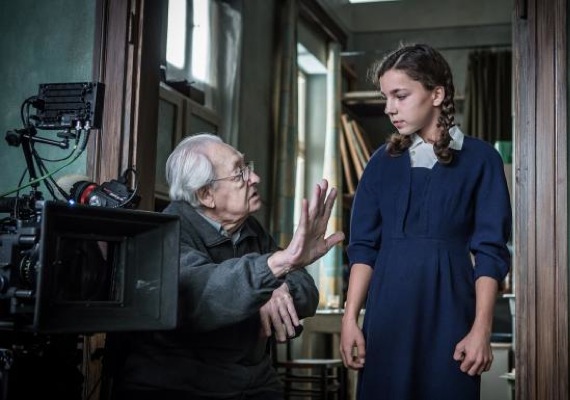 Afterimage marks the final film by late Polish film director Andrzej Wajda who died in early October at the age of 90 from pulmonary failure.
Afterimage marks the final film by late Polish film director Andrzej Wajda who died in early October at the age of 90 from pulmonary failure.
Four of his movies were nominated for best foreign language Oscars: 1975’s The Promised Land, 1979’s The Maids of Wilko, 1981’s Man of Iron (1981) 2007’s and Katyń (2007), and once again Poland is appropriately submitting the filmmaker’s latest Afterimage as its Oscar contender this year. Sixteen years ago, Wajda received an honorary Oscar for his canon.
Wajda was part of the Polish Film School, a filmmaker collective, inspired by the Italian Neorealists like Vittorio De Sica and Roberto Rossellini, that spanned the mid 1950s until the mid 1960s. Their works tackled Polish history during World War II and the German occupation; and their minds were still branded by the Warsaw uprising and the German concentration camps. Wajda was known for the symbolism in his movies and his titles centered around a number of political issues that weighed down his homeland.
Wajda’s 1981 title Man of Iron was his commitment to Poland’s Solidarity movement, a sequel to The Man of Marble (which Solidarity leader Lech Walesa appeared in as himself). Man of Iron followed the 1980 summer events at the Gdansk shipyard, centering around an alcoholic journalist’s assignment to dig up dirt on a charismatic leader of striking shipyard workers. But the reporter’s radical spirit sets in, and vies to side with those striking. Wajda’s involvement in the Solidarity movement forced the Polish government to close his production company, and the director wound up winning the Palme d’Or that year at the Cannes Film Festival for Man of Iron.
Afterimage follows another type of rebel: Polish artist Wladyslaw Strzeminski who refused to trade in his abstract imagery for a propaganda Socialist Realist art style. The painter is fired from the National School of Fine Arts he co-founded, has his works destroyed and he’s ultimately driven to a poor man’s grave by the government that once honored him.
Sourced from Deadline.com

